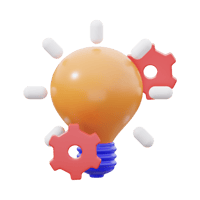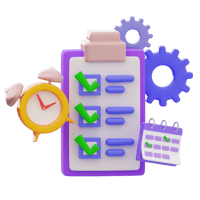Definition of AI Automation AI automation represents the use of artificial intelligence...
Practical use cases of automation
Practical Applications of AI Automation Across Some Industries
AI automation is revolutionizing numerous industries by optimizing processes and contributing to innovation in various sectors. In the manufacturing and supply chain industry, AI automation is deployed to enhance production efficiency, predict maintenance needs, and streamline logistics operations. Advanced AI algorithms enable the analysis of vast data sets, ensuring that all stages of production and distribution are optimized, reducing downtime, and minimizing waste. In the healthcare sector, AI automation is being harnessed to innovate patient care through personalized treatment plans, predictive diagnostics, and operational efficiency in hospital management. By integrating AI technologies, healthcare providers can predict patient outcomes and tailor interventions, leading to better patient care and resource allocation. Financial services also benefit from AI automation, particularly in risk management and fraud detection. AI systems analyze transaction patterns at unprecedented speeds to detect anomalies and potential fraudulent activities, providing enhanced security and trust for consumers and institutions. Furthermore, AI-driven insights support financial advisors in offering personalized investment strategies, adapting to market changes with greater precision. As these industries—and others—continue to embrace AI automation, they are not merely enhancing efficiency but transforming the very nature of how they operate, innovate, and deliver value. Let's delve deeper into some of these use cases.
Manufacturing and Supply Chain Management
In the realm of manufacturing and supply chain management, AI automation is serving as a linchpin for advancing operational efficiencies and transforming traditional methodologies. By integrating AI, companies can achieve significant improvements in production capabilities through predictive maintenance, where machines anticipate faults before they occur, thereby reducing downtime and extending equipment lifespan. Additionally, AI-driven analytics facilitate the optimization of inventory management by predicting demand trends more accurately, ensuring that inventory levels align perfectly with real-time market demands. This reduction in inventory discrepancies not only minimizes waste but also guarantees that production processes flow smoothly without unexpected halt. Furthermore, AI enables enhanced logistics planning by analyzing myriad data points, such as traffic patterns and weather conditions, to chart the most efficient delivery routes. This leads to improved delivery times and cost-effectiveness, bolstering a company's ability to meet customer expectations consistently. By harnessing the power of AI, manufacturers and supply chain entities can not only streamline their internal processes but also adapt cumulatively to evolving market landscapes, thus cementing their competitive edge in the industry.
Healthcare and Innovation in Patient Care
In the healthcare industry, AI automation is reshaping the landscape of patient care by introducing innovative solutions that enhance both efficiency and treatment outcomes. Through the deployment of sophisticated AI systems, healthcare providers can personalize treatment plans by analyzing vast amounts of patient data, enabling them to tailor interventions to the individual's unique health profile and needs. This personalization extends to predictive diagnostics, where AI models swiftly evaluate patient data to foresee potential health issues before they fully develop, allowing for preemptive measures that can dramatically improve patient outcomes. Furthermore, AI automation contributes to operational efficiency within hospitals by optimizing scheduling, resource allocation, and management processes, ensuring that healthcare facilities can provide timely attention to patients while minimizing strain on resources. As healthcare continues to integrate AI technologies, the potential for enhanced patient satisfaction and health results is immense, providing a transformative impact that aligns with the evolving needs of the healthcare ecosystem. This forward-thinking approach not only benefits patients but also supports healthcare providers in maintaining a cutting-edge service in an increasingly competitive and complex environment.
Financial Services and Risk Management
AI automation is redefining financial services, particularly in the arenas of risk management and fraud detection, by harnessing advanced algorithms to enhance accuracy and speed. With the power to process and analyze vast quantities of data in real-time, AI can identify atypical patterns and potential threats much faster than traditional methods, providing institutions with a robust mechanism to preemptively address risks. This advanced capability allows financial firms to maintain high levels of security, safeguarding sensitive customer information and cultivating increased trust and reliability. Additionally, AI-driven insights empower financial advisors by delivering personalized investment strategies that are responsive to dynamic market conditions, thereby optimizing client portfolios for maximum returns. Moreover, AI automation is pivotal in streamlining compliance procedures, reducing the burden of manual regulatory checks, and ensuring adherence to financial regulations with precision. This not only minimizes operational costs but also enhances the agility of financial organizations to navigate the ever-evolving regulatory landscape. As financial institutions continue to adopt AI technologies, they are able to foster a more innovative and secure service environment, staying ahead in a highly competitive industry.


